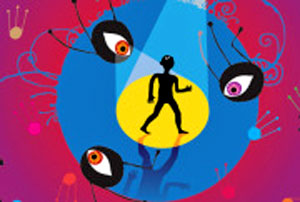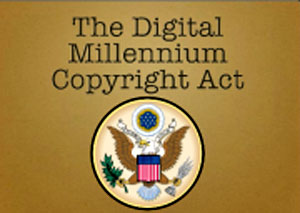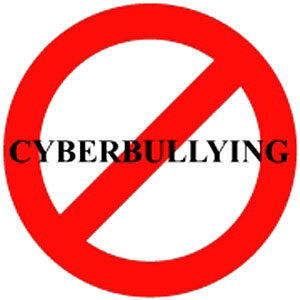
by Christina DesMarais
June 10, 2012
from
PCWorld Website
|
Think what Congress and state
legislatures do is boring? Read on to see what Internet and/or
privacy rights you might lose if some of this misguided legislation
passes. |

Child pornography, cyberbullying, online piracy
- these are real-world problems that need solutions. But does legislating
them away work?
You may think what your state capital or what Capitol Hill is up to is
boring and not worth keeping tabs on. But see if you don't get your juices
flowing after reading how your tech freedoms could be reined in by some of
the dumb bills we've pinpointed in this story.
If lawmakers don’t think through the implications of the legislation they
create, they just muck things up further. In fact, this slew of bills at the
national and state levels - as well as several international treaty
proposals in the works - are outright stupid.
You should be concerned about some of these proposed changes to U.S. law -
how will they infringe upon your privacy? And note that a couple of them are
in negotiations behind closed doors without public input at all.
1 - H.R. 1981
Protecting Children from Internet Pornographers Act of
2011

-
The Legislation: If passed, this
legislation could force any business offering paid Internet access -
airports, hotels, coffee shops, and ISPs - to
keep records of users’
online activities, so that if the government ever wants to inspect
them, it can.
-
Why It's Terrible: Most people want to
keep kids safe, but having the government spy on everyone who uses
the Internet is not the answer. You’d think there would be other
ways to catch perverts that don’t involve such a frightening
infringement on the privacy of innocent people.
-
Status: H.R.1981 is out of committee; it
has been placed on the calendar and is slated for discussion in the
U.S. House of Representatives at some point.
-
Why You Should Care: Don’t let the title
on this one fool you. H.R. 1981, if made into law, will let the
government spy on and keep records of everything you do online.
2 - Hawaii H.B.2288
Hawaiian Data Retention Bill

-
The Legislation: H.B.2288 would mandate
that any company that provides Internet access in Hawaii - not only
ISPs, but coffee shops, libraries and workplaces - keep two years of
usage records, including the sites users visited and the IP
addresses used.
-
Why It's Terrible: We’re not talking
about the long-term tracking of people suspected of a crime, but
everyone who uses the Web in the entire state of Hawaii. Imagine if
all that data got into the wrong hands or could be used against
people in some way.
-
Status: The politician who proposed the
bill, Rep. Kymberly Pine, an Oahu Republican and the House
minority floor leader, backed down from the bill, and
it's been
tabled.
-
Why You Should Care: The
Electronic
Frontier Foundation, whose motto is "Defending Your Rights in the
Digital World," says H.B.2288 “is one of the most poorly drafted
pieces of data retention legislation” that it has ever seen.
3 - New York State S.6779 and
A.8688

“agrees to attach his or her name to
the post and confirms his or her IP address, legal name, and
home address.”
It also requires that websites make
visible in any section where comments are posted a contact number or
e-mail address that people can use to put through removal requests.
“We have a First amendment right to
speak anonymously and certainly people who host their own
websites can decide that they only want people to use their real
names…
But what you can’t do is have the
government force people to speak using their real names. We have
a history of anonymous speech here in the U.S. from
The
Federalist Papers through to today.”
-
Status: Both bills are still in
committee.
-
Why You Should Care: Yes, folks who
comment online can be rude and cyberbullying is a problem, but
imagine how important discourse on a myriad of topics would decrease
if people had to associate their names with them.
4 - Trans Pacific Partnership

“The Trans-Pacific Partnership (TPP)
is a secretive, multi-nation trade agreement that threatens to
extend restrictive intellectual property laws across the globe.”
-
Why It's Terrible: It’s even worse than
ACTA (the Anti-Counterfeiting Trade Agreement) and puts intellectual
property governance in the hands of lobbyists. The EFF says the TPP
will have a broad impact on citizens’ rights, the future of the
Internet’s global infrastructure, and global innovation. And again,
this one is being forged
largely without input from the public.
-
Status: The next round of TPP
negotiations will be held in San Diego, California, on July 2-10.
-
Why You Should Care: SOPA backers such
as the Recording Industry Association of America (RIAA) and the
Motion Picture Association of America (MPAA), plus plenty of other
corporate entities, are behind the TPP. For more ugly details about
the TPP, visit
the EFF, where you can use an automated action alert
to tell your congressional representatives that you’re against the
agreement.
5 - DMCA - Digital Millennium
Copyright Act

-
The Legislation: This one isn’t new, but
it’s bad enough to deserve a mention.
The DMCA made it illegal to
produce and share technology or services that circumvent digital
rights management (DRM) technologies that keep you from using
digital content in ways that content providers didn’t intend.
-
Why It's Terrible: Instead of working
against people stealing copyrighted content, DMCA is often used
against consumers, scientists, and legitimate competitors. For
instance, in 2009 Google said that more than half of the takedown
notices it had received under the DMCA were
sent by businesses
targeting competitors and that more than one third were not valid
copyright claims.
-
Status: The DMCA became law in 1998.
-
Why You Should Care: Clearly the DMCA
didn’t do away with content pirating, or we wouldn’t still see
Hollywood trying to push legislation like SOPA or ACTA.
-
Next: More bad bills (CISPA, SOPA, PIPA,
and more).
6 - H.R 3523
Cyber Intelligence Sharing and Protection Act (CISPA),
and S.2151: SECURE IT

-
The Legislation: These bills
seek to
protect the U.S. from cyberterrorism and other online attacks and
would let companies share users' private data with government
agencies. Such data would not be just regarding threats of online
attacks; companies would be able to share users' private data in the
event of computer crime or the exploitation of minors, and to
protect people from the danger of death or serious bodily harm.
-
Why They Are Terrible: The legislation
is overly broad and would allow companies to share people’s private
and sensitive information with the government without a warrant or
oversight. Government agencies such as the National Security Agency
or other parts of the Department of Defense could then keep it
forever and create profiles for not only suspected terrorists, but
regular people as well.
-
Status: CISPA was passed in the House of
Representatives in April. Either CISPA or SECURE IT will likely come
up for a vote in the Senate soon. The Obama administration has
issued a statement saying that if CISPA ends up on the President’s
desk, his senior advisors will recommend that he veto it.
-
Why You Should Care: If the government
wants personal information on users of services, including the
content of e-mail messages, it should have to go to a judge and get
a warrant. Otherwise we’re looking at a police state.
Want to do something about it?
PrivacyIsAwesome.com provides
several automated tools for reaching out to lawmakers about the
issue.
7 - H.R. 96
Internet Freedom Act

-
The legislation: This bill would stop
the Federal Communications Commission from executing on its “Net
Neutrality” rules, which aim to
keep the Internet open by stopping
Internet service providers from doing things such as throttling or
blocking access to the Internet.
-
Why It's Terrible: According to
SaveTheInternet.com, phone and
cable companies are spending hundreds of millions of dollars
lobbying Congress to axe Net Neutrality so they can decide,
“which websites and apps go fast,
which go slow … and which won't load at all."
The site adds,
"They want to tax content providers
to guarantee speedy delivery of their data. And they want to
discriminate in favor of their own apps, services and content -
while slowing down or blocking competitors’ services.”
-
Status: H.R.96 has been referred to the
U.S. House of Representatives Subcommittee on Communications and
Technology.
-
Why You Should Care: Who wants
commercial greed dictating the availability and speed of the
Internet? This one is a bad egg.
8 - State of Arizona House
Bill 2549

-
The Legislation: H.B.2549 is
another one
intended to act against bullying and stalking. It criminalizes the
use any electronic or digital device to communicate using "obscene,
lewd or profane language" if done with the intent to "terrify,
intimidate, threaten, harass, annoy or offend."
-
Why It's Terrible: According to First
Amendment rights group Media Coalition, commenting on the bill's
original wording, the bill,
“…is not limited to a one to one
conversation between two specific people. The communication does
not need to be repetitive or even unwanted.
There is no requirement that the
recipient or subject of the speech actually feel offended,
annoyed or scared.
Nor does the legislation make clear
that the communication must be intended to offend or annoy the
reader, the subject or even any specific person.”
-
First, ‘annoy’ and ‘offend’ have
been removed from the legislation so that the bill would
only apply to electronic speech that is intended to terrify,
threaten, intimidate, or harass.
-
Second, the intent to terrify,
threaten, intimidate, or harass must be of a specific
person(s) rather than a general intent.
-
Third, the communication must be
directed to the person the speaker intends to terrify,
threaten, intimidate, or harass rather than be a general
communication.
-
Fourth, the legislation is
limited to telephone calls, text messages, instant messages,
and email.
9 - H.R. 3261
Stop Online Piracy Act (SOPA), and S.968: Protect IP Act
(PIPA)

-
The Legislation: These federal bills
would have allowed rights holders to seek court orders requiring
payment providers, advertisers, and search engines to stop doing
business with websites that infringe copyrighted material so that
search links to such sites would be removed. (For background, see "SOPA
and PIPA: Just the Facts.")
-
Why They Were Terrible: Neither piece of
legislation did enough to protect against false accusations.
In
addition, an
open letter to Washington signed by tech industry big
shots such as Sergey Brin and Jack Dorsey in December
pointed out that such legislation would,
“Give the U.S. Government the power
to censor the web using techniques similar to those used by
China, Malaysia and Iran.”
-
Status: After a mass protest by Web
companies and users on January 18, Congress indefinitely postponed
further action on the bills, effectively leaving them
dead in the
water.
-
Why You Should Care: A big thank-you
goes to the many companies and millions of regular people who stood
up to douse these two.
10 - Anti-Counterfeiting
Trade Agreement (ACTA)
-
What It Is: As
SOPA and PIPA’s big
brother, the treaty would let countries employ a three-strike rule
that would require Internet users to be cut off if they continue to
download copyrighted material after two warnings.
-
Why It's Terrible: Unlike SOPA and PIPA,
ACTA was crafted in secret. It aims to protect intellectual property
but requires highly intrusive monitoring of Internet users’ habits
to do so. It also
doesn’t include safeguards, such as judicial
oversight or the presumption of innocence.
-
Status: The agreement becomes official
only if ratified by 6 of the 11 signatories:
-
Australia
-
Canada
-
the European Union
-
Japan
-
Mexico
-
Morocco
-
New Zealand
-
Singapore
-
South Korea
-
Switzerland
-
the U.S.
ACTA was signed by the European
Commission and 22 E.U. member states in January, but following
protests throughout Europe, many countries reversed their decisions
to sign. European Parliament committees recently voted to reject it.
|










